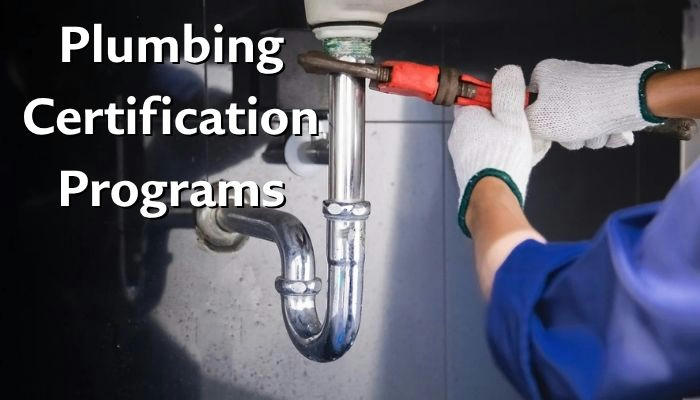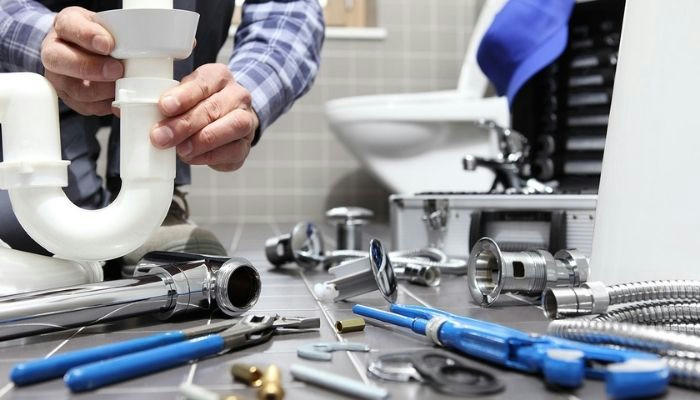Plumbing Certification Programs That Lead to Real Jobs
Plumbing remains one of America's most stable career paths, with certified professionals consistently landing good-paying jobs regardless of economic shifts. This guide breaks down certification pathways that directly translate into employment opportunities in residential, commercial, and industrial plumbing sectors.

Why Plumbing Certification Matters in 2025
High demand, low competition:
The U.S. faces a shortage of 550,000 skilled plumbers through 2028. Certified technicians command better positions through:
• Higher starting salaries (25%+ premium over uncertified peers)
• Priority for commercial and municipal contracts
• More emergency service call assignments
• Insurance coverage eligibility
Plumbing Career Ladder Explained
Step 1: Pre-Apprenticeship Preparation (0-3 Months)
Basic courses covering industry essentials:
• OSHA safety protocols (10-hour certification)
• Tool identification and use
• Blueprint reading fundamentals
• Math for pipe measurements
Step 2: Apprenticeship Programs (4-5 Years)
Combined learning: Paid on-the-job training + technical classroom instruction.
• Earn while learning ($16-$22/hour starting)
• 2,000 hours annual field work requirement
• Specialize in residential, commercial, or industrial systems
Step 3: Journey-Level Certification (1-2 Years Post-Apprenticeship)
State-specific licensing exams typically cover:
• Water supply and distribution systems
• Drainage, waste, and venting
• Fuel gas piping systems
• Plumbing code applications
State-by-State Licensing Requirements
| State | Classroom Hours | Field Hours | Exam Required | Average Fee |
|---|---|---|---|---|
| California | 246 | 8,000 | C-36 License | $350 |
| Texas | 200 | 8,000 | Tradesman/Journeyman | $125/$175 |
| Florida | 120 | 4 years | Certified Plumber Exam | $135 |
| New York | 108 | 7.5 years | Master Plumber License | $525 |
| Illinois | 144 | 4 years | State Plumbing Exam | $100 |
Always verify requirements through your state's licensing board
Specialized Plumbing Certifications
Advanced credentials increase employability:
Medical Gas Systems
Installs for hospitals and laboratories:
• 32-hour training requirement
• ASSE 6000 series certification
• $8-$10/hour salary premium
Backflow Prevention
Protecting water supplies:
• EPA-recommended training
• Assembly Testing and Repair (ATR) certification
• Required for municipal contracts
Green Plumbing Technologies
Solar water heating systems:
• SEI certification pathway
• LEED project eligibility
• 22% industry growth projected
Top Training Program Formats Compared
| Program Type | Duration | Cost Range | Ideal For | Job Placement Rate |
|---|---|---|---|---|
| Union Apprenticeships | 4-5 years | $600-$900/year | Career changers | 97%+ |
| Technical Colleges | 1-2 years | $8,500-$16,000 | Recent graduates | 89% |
| Community College | 2 semesters | $3,000-$5,500 | Quick entry | 82% |
| Private Trade Schools | 6-9 months | $5,000-$12,000 | Focused training | 77% |
| Online-Hybrid Programs | Self-paced | $2,500-$7,000 | Rural residents | 68% |
Job Market Insights for Certified Plumbers
Current hiring patterns:
• 72% employers require certification before hiring
• 65% service companies hire directly from apprentice programs
• New construction projects allocate 3 plumbers per $1 million contract
Industry salary progression:
| Experience Level | Residential Service | Commercial Service | Industrial Systems |
|---|---|---|---|
| Apprentice | $16-$22/hr | $18-$24/hr | $20-$28/hr |
| Journeyman | $26-$36/hr | $32-$44/hr | $38-$52/hr |
| Master Plumber | $42-$65/hr | $48-$72/hr | $55-$85/hr |
| Contractor/Owner | $85,000-$125,000/year | $95,000-$150,000/year | $120,000-$190,000/year |
Future-Proofing Your Plumbing Career
2025 Technical Skills
• CAD software for plumbing design
• ProPress and MegaPress installation
• Smart home water system integration
• Hydrojetting certification
Business Development
• Service Titan software proficiency
• Customer management techniques
• Specialized equipment investments

Starting Your Plumbing Journey: Action Steps
Contact your state's plumbing board for requirements
Research UA Pipe Trades apprenticeships in your region
Attend trade school open house events
Identify specialty certifications with high demand
Develop core skills:
• Copper and PVC soldering
• Pipe threading techniques
• Water pressure diagnostics
Prepare for job interviews with troubleshooting scenarios
Plumbing certification creates tangible paths to steady employment. The structured progression from apprentice to master provides clear milestones and consistent wage growth. Unlike many careers threatened by automation, certified plumbing remains resilient through the fundamental need to maintain water infrastructure. Begin with your state's required certifications, then build specialty credentials as your career advances. This pragmatic approach delivers professional credibility and financial security that withstands economic fluctuations.
